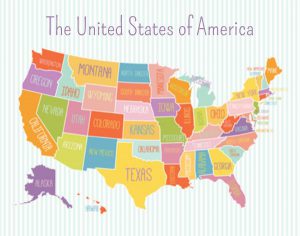FERPA (Family Educational Rights and Privacy Act)

This is a U.S. federal law that grants college students authority over their education records. Under this law, students decide who may see their records. Students have access to their own academic records, this includes college financial information, grades, class schedules, and disciplinary reports. Students may give their parents viewing access to their education records. Students can also download their records and send them to family members.
Social Security Number (SSN)
A Social Security number is a 9-digit number that is issued to U.S. citizens. The Social Security number is used to report wages to the government, apply for certain federal benefits, and it is sometimes used for identification purposes. Citizens of other countries can apply for a Social Security number if they are permanent residents of the U.S. or if they are temporarily employed in the U.S. Most banks request a Social Security number to open a bank account.
Social Security numbers are sometimes used as student identification numbers to enroll in a college or university, but schools should have an alternative system for providing an identification number to international students. Online information about international students and Social Security numbers is here. For more information about obtaining a Social Security number, students should talk with their international student service office.
Working in the U.S.
Students with F-1 Visa status may work on campus with some restrictions. During their first year, students may not work off campus. Any off-campus work must be related to the student’s area of study and must be approved by the institution’s official responsible for overseeing Student and Exchange Visitor Information System (SEVIS). For more information, ask your student to talk to the international student office. Also see the Employment section on this website.
State Laws:

Legal Drinking Age
In the United States, the legal drinking age is 21. In most states, anyone under 21 may not legally purchase or drink alcohol. In some places, anyone purchasing alcohol for a person who is under 21 can be penalized. Fines may be as much as $5,000 and penalties can be a year in jail. For more information about alcohol and college students, click here.
Driving in the U.S.
A drivers license is required in order to drive a car or motorcycle in the U.S. In some cases, students may use an international drivers license or their home country drivers license (if it is printed in English). Each state in the U.S. has established its own requirements for issuing drivers licenses. Typically U.S. drivers must be at least 16, and there can be additional requirements for drivers under the age of 21. For information on obtaining a drivers license, see DMV Fact Sheet
Bicycling in the U.S.
Many international students use bicycles on and around campus, and bicycle laws may be different than in the student’s home country. Some states require cyclists to wear helmets. Cities may also have laws related to bicycles, such as prohibitions against riding on sidewalks. To find a list of laws for the state where your student will be living, click here.

